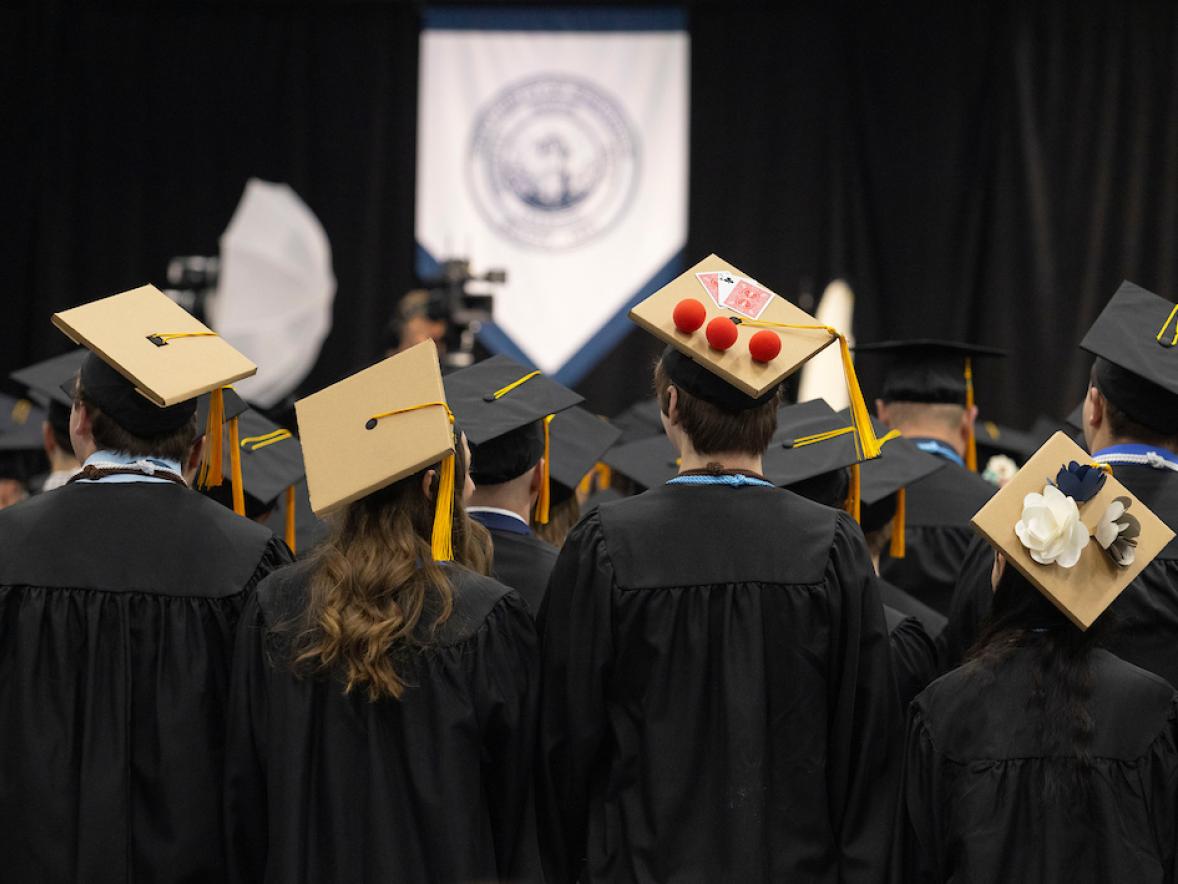Professors at UW-Stout’s School of Education have developed an instrument for measuring students’ dispositions, part of the school’s assessment system for its seven undergraduate teacher education programs.
The disposition committee presented “Professional Dispositions: Development, Validation and Implementation” to colleagues from universities around the country at the American Association of Colleges for Teacher Education conference in March, in New Orleans.
A disposition is the professional attitudes, values and beliefs of educators, demonstrated through their verbal and nonverbal behaviors as they interact with students, families, colleagues and communities.
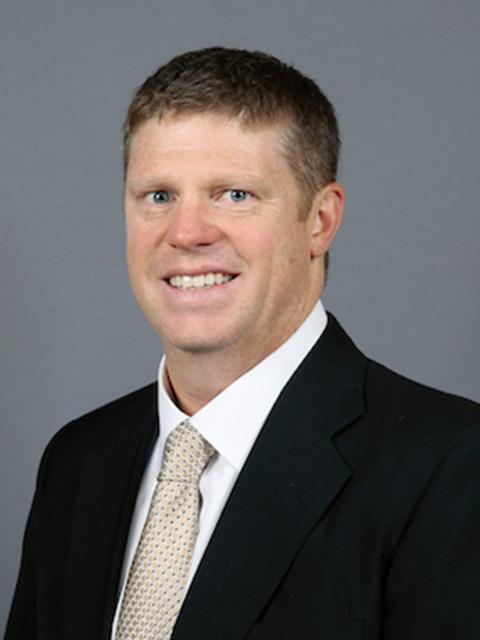
The committee developed the new disposition instrument to measure education students’ progress as they reach benchmarks within their teaching programs. Students’ dispositions are reviewed by faculty and staff before they begin student teaching.
The committee identified 15 dispositions to be measured that fit under five major categories: collaboration, continuous learning, inclusiveness, professionalism and reflection.
Kevin Mason, special education program director and disposition committee chair, believes it is “absolutely vital for every teacher to be able to collaborate and communicate effectively and respectfully with students and families. Those skills cannot be measured on a standardized exam for teacher licensure.
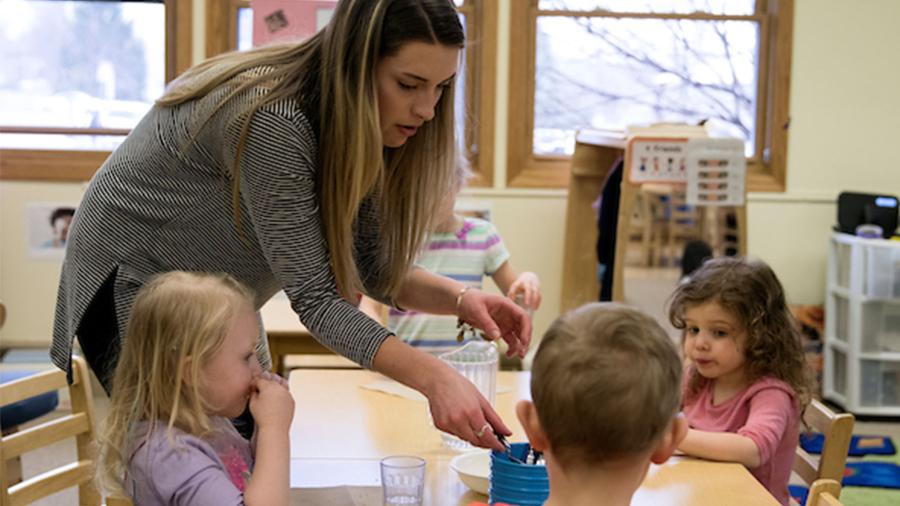
“At UW-Stout, we teach our preservice teachers to work effectively with students and families in our courses and through a variety of field experiences in the classroom. We want our graduates to be great with kids and contribute positively to their school and community,” he said.
After the conference, Mason received several requests from colleagues around the country who wanted more information.
“The attendees were very impressed with the development, validation and implementation of our professional disposition instrument at UW-Stout,” Mason said. “Some have adapted it for their own teacher education programs.”
Universities that requested the disposition instrument include:
- Brigham Young University, in Provo, Utah
- College of Education and Human Development, University of Missouri, in Columbia, Mo.
- Feinstein School of Education and Human Development, Rhode Island College, in Providence, R.I.
- St. Mary's College, Notre Dame, in South Bend, Ind.
- Thelma P. Lally School of Education, College of St. Rose, in Albany, N.Y.
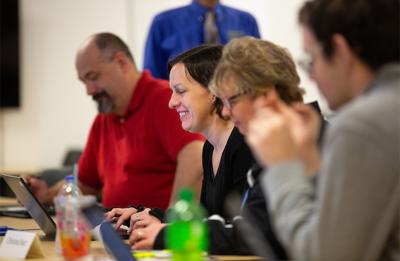
Assistant Professor Julienne Cuccio Slichko at the College of St. Rose created self-paced modules for their students to learn about the dispositions. “We are so very grateful to UW-Stout’s department for getting us started,” she said.
The committee members are Mason; Ann Carlisle, art education; Allison Feller, Child and Family Study Center; Diane Klemme, family and consumer science education; Jim McMullen, school counseling; Chris Peterson, school psychology; and Deb Stanislawski, marketing and business education.
AACTE is a nonprofit national alliance of education programs dedicated to the professional development of pre-K-12 teachers and school leaders, representing more than 800 postsecondary institutions with educator preparation programs.
A renovation to support Wisconsin’s workforce needs
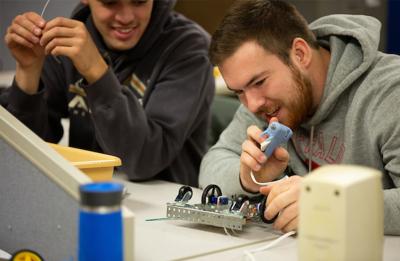
UW-Stout’s School of Education, housed in Heritage Hall, offers seven undergraduate teaching degrees and five postgraduate teaching degrees, as well as eight education certificates and certifications
SOE is working to fill a statewide need for teachers, as many school districts struggle to fill existing positions. Wisconsin K-12 schools made nearly 3,700 emergency teacher hires in 2020, according to the Wisconsin Department of Public Instruction.
SOE graduates approximately 100 undergraduate students and 25 graduate students each year, with a 99% employment rate within six months of graduating.
Heritage Hall, one of the university’s busiest classroom and lab buildings, serves more than 2,000 students each academic year. It is also home to the School of Hospitality Leadership, nutrition and family health, and the Weidner Center for residential property management. It will be the future home of four Graduate School programs in clinical mental health counseling, marriage and family therapy, psychology and school counseling.
Major renovation of Heritage Hall ranked No. 1 in Chippewa Valley, third for UW System academic buildings
Continue ReadingA major renovation of the hall received priority approval on Aug. 19, at the UW System Board of Regents meeting held at UW-Green Bay. The project is ranked No. 1 in the Chippewa Valley and third for UW System academic buildings.
The state job outlook for graduates from most of the programs based in the building is expected to grow between 6% and 15% by 2025. The improved capacity provided by the Heritage Hall renovations will help provide qualified Wisconsin workers to address workforce needs.
The Board of Regents’ action means that the renovation will be in the UW System’s capital request to the Legislature for the 2023-25 state budget. If the $120,614,000 project is included in the state budget, final approval still is needed by the State Building Commission. Construction could begin as early as fall 2025 and will take about 24 months.





